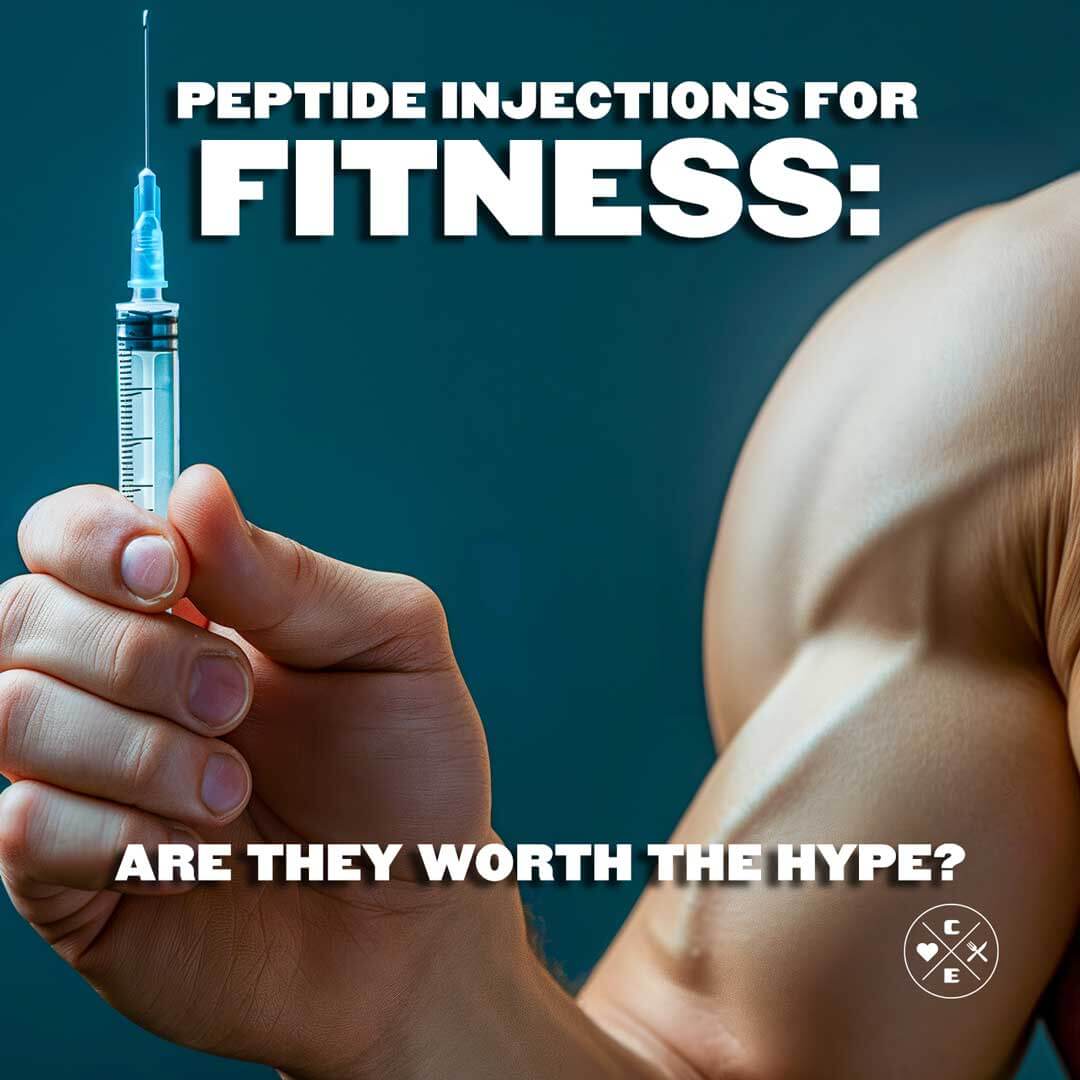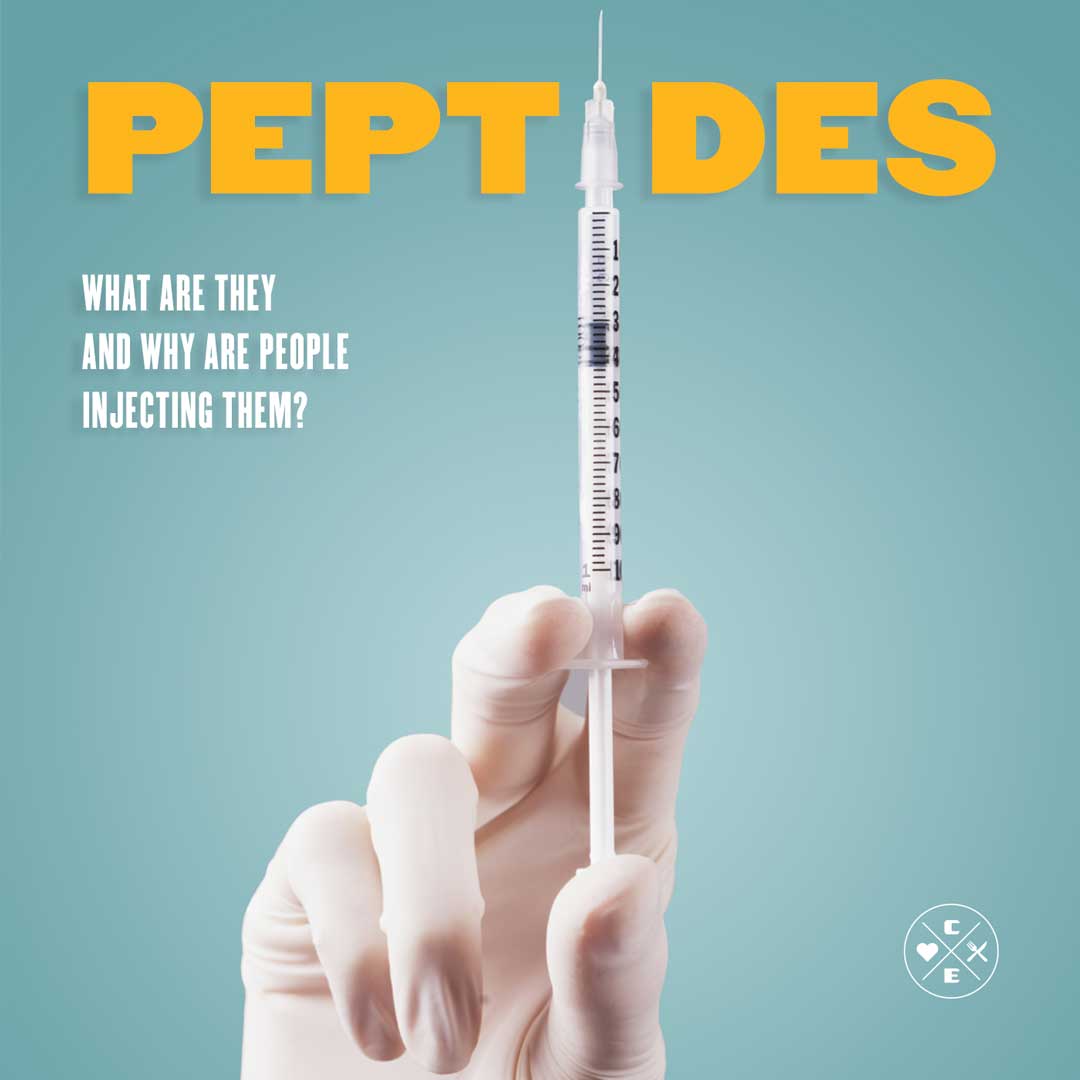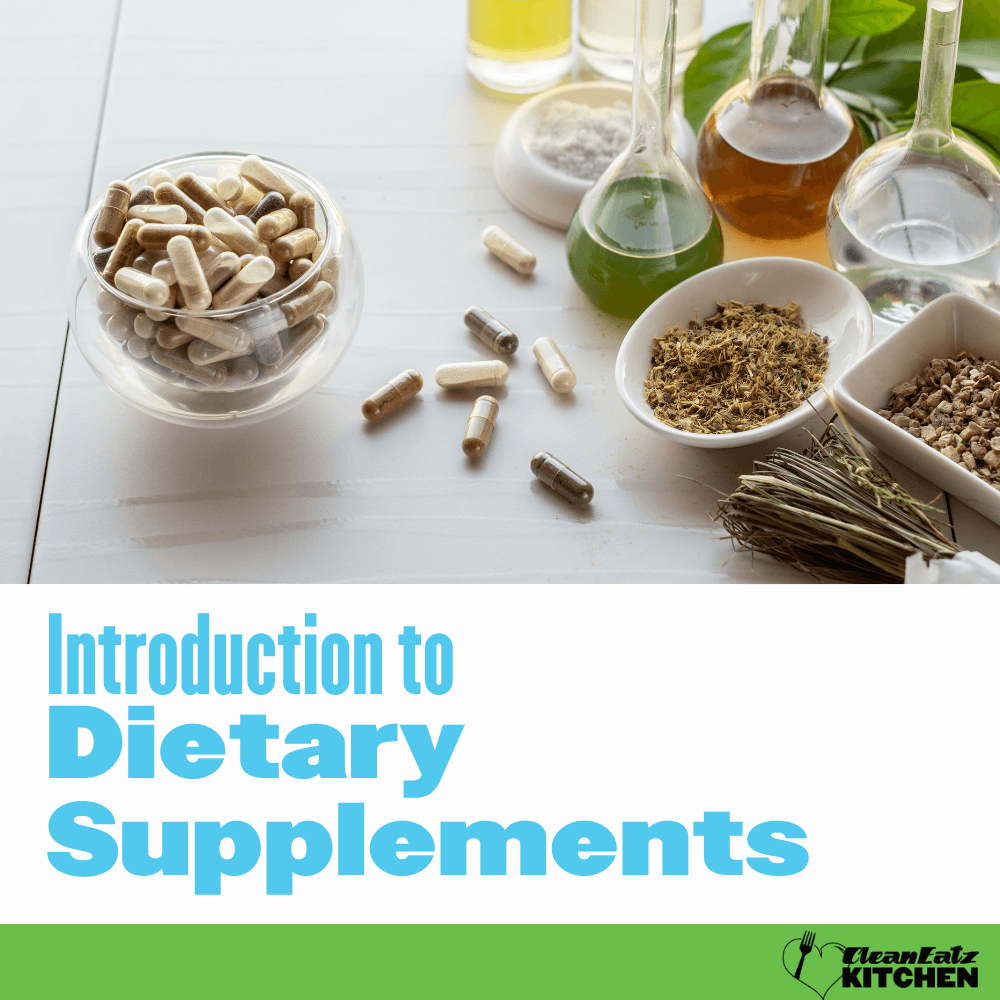
Peptide Injections for Fitness: Are They Worth the Hype?
Dorothy M. Shirnyl, RND
Nutrition
|
Exercises & Fitness
|
Healthy Lifestyle
16 minute read
Fitness fanatics are always on the lookout for that extra edge, that secret weapon to unlock new levels of performance and physique. Peptides, delivered via injection, are the latest contender vying for a spot in the athlete's arsenal. They claim to boost muscle growth, speed up recovery, and melt away fat. But can these tiny amino acid chains truly deliver on such bold promises, or are they just another fleeting trend destined to fade away?
This article takes a critical look at the science behind peptide injections, examining their mechanisms and the evidence supporting their use in fitness. Here, we'll delve into the following matters:
What are Peptides?
Peptides are essential to a wide range of biological processes that influences everything from muscle growth and tissue repair to hormone regulation. But what exactly are they?
Essentially, peptides are short chains of amino acids, the very same building blocks that make up proteins. The difference? Peptides are much shorter, typically containing between two and fifty amino acids, while proteins can be massive, with hundreds or even thousands. In other words, if proteins are the intricate machines driving our cells, then peptides are the specialized tools they use to get specific jobs done. Some peptides act as messengers that relay signals between cells, while others function as enzymes that speed up biochemical reactions.
Difference Between Peptides and Hormones
Now, you might be wondering how peptides differ from hormones. Well, some hormones actually are peptides (like insulin), but others have completely different structures (like the steroid hormone, testosterone).
Peptides exert their effects by acting as signaling molecules, communicating with cells throughout the body. Their small size and specific sequences allow them to interact with receptors on cell surfaces. As a result, it triggers a cascade of events that lead to various physiological responses.
Think of it like a lock and key:
- The Peptide is the The "key" with a unique shape (its amino acid sequence).
- The Receptor is the "lock" on the cell surface, designed to fit a specific key.
When a peptide binds to its corresponding receptor, it activates the receptor, like turning a key in a lock. This activation triggers a series of signals within the cell, ultimately leading to changes in cell behavior or function.
Hormones, on the other hand, tend to have broader, more systemic effects. They act as chemical messengers that travel through the bloodstream to regulate various bodily functions.
Types of Peptides Used in Fitness
In the world of fitness, peptides are generating a lot of buzz for their potential to enhance performance and recovery. To understand how they might help (or hinder) your fitness journey, it's important to grasp their basic properties and how they operate. Here's a look at some of the key players:
1. BPC-157: The "Healing" Peptide
BPC-157 is a synthetic peptide derived from a protein found in gastric juice. It's known for its reputation for its potential to accelerate healing from various injuries, including muscle strains, tendonitis, and ligament damage.
So, how it might work? BPC-157 appears to promote the formation of new blood vessels (angiogenesis), enhance collagen production (crucial for tissue repair), and modulate inflammation. Its potential benefits may include the ability to speed up recovery from injuries, reduce pain, and improve gut health.
Note: Most research on BPC-157 is in animals, and its efficacy and safety in humans are not fully established.
2. TB-500: For Tissue Repair
TB-500 is a synthetic version of thymosin beta-4, a naturally occurring peptide found in almost all human and animal cells. Like BPC-157, it's being investigated for its potential to promote wound healing and tissue regeneration.
The TB-500 is thought to regulate actin, a protein that plays a crucial role in cell structure and movement. It may also promote cell migration and the formation of new blood vessels. It is thought that it can help accelerate healing from muscle, tendon, and ligament injuries, and potentially improve flexibility and range of motion.
Note: Again, most research is preclinical, and more human studies are needed.
3. GHRP-6: The Growth Hormone Booster
GHRP-6 is a synthetic peptide that stimulates the release of growth hormone (GH) from the pituitary gland. GH is a key hormone for muscle growth, fat metabolism, and overall body composition.
How it works? GHRP-6 activates the ghrelin receptor, which triggers GH release. It also increases appetite, which can be beneficial for those looking to increase calorie intake for muscle growth. It is found that it can potentially enhance muscle growth, promote fat loss, and improve sleep quality.
Note: GHRP-6 can affect other hormones like cortisol and prolactin, so monitoring is essential.
Benefits of Peptide Injections for Fitness
Peptide injections offer a range of potential advantages for those seeking to level up their fitness journey. Here's a breakdown of how they might help:
1. Muscle Growth and Recovery
Growth hormone-releasing peptides (GHRPs) are a hot topic in the fitness world, and for good reason. They hold the potential to significantly amplify muscle growth and accelerate the recovery process, helping you push your limits and achieve the results you crave.
Interestingly, studies have shown that GHRPs can also have a direct impact on muscle tissue, independent of their effects on GH. This means they might offer a two-pronged approach to muscle building. For example, research has demonstrated that GHRP-2 can directly protect muscle from breaking down, especially in cases of muscle wasting or disease. Even more exciting, scientists are developing new GHRP compounds that show promise for improving muscle growth and combating age-related muscle loss (sarcopenia)Anecdotal evidence and studies supporting muscle recovery.
2. Fat Loss
Shedding unwanted fat is a common goal for many fitness enthusiasts, and peptides may offer a helping hand in this endeavor.
Some peptides, like AOD-9604 (a fragment of the growth hormone molecule), may directly stimulate the breakdown of fat cells, releasing stored fatty acids to be used as fuel. It works by mimicking the way natural growth hormone regulates fat metabolism, but without the adverse effects on blood sugar or growth that can be seen with full growth hormone.
AOD9604 is a synthetic analogue of the lipolytic domain of human growth hormone (hGH). A study conducted on obese Zucker rats showed that daily treatment with an oral dose of AOD9604 significantly reduced body weight gain. The adipose tissues of the treated animals showed an increase in lipolytic activity, which is the process of breaking down fat. Unlike chronic treatment with intact hGH, AOD9604 did not negatively affect the insulin sensitivity of the animals. This suggests that AOD9604 has the potential to be developed into an orally usable and safe therapeutic agent for obesity.
3. Enhanced Performance
For athletes pushing their limits, endurance and stamina are the keys to success. Thus, peptides may offer a way to enhance these crucial aspects of performance, helping you go further and faster.
Research also suggests that certain combinations of peptides, like those found in collagen supplements or whey protein hydrolysates, may work together to improve body composition and muscle strength in athletes. This could mean increased muscle mass, reduced fat, and greater overall strength gains.
For example, studies have shown that collagen peptides combined with resistance training can lead to significant improvements in body composition and muscle strength in both men and women. Other research indicates that whey protein hydrolysates may enhance the way our bodies use energy during exercise, potentially boosting endurance and stamina.
4. Injury Recovery
Injuries are an unfortunate reality for anyone pushing their physical limits. Whether it's a strained muscle, a sprained ligament, or a nagging tendonitis, injuries can derail your fitness progress and sideline you from the activities you love. Peptides like BPC-157 are gaining attention for their potential to accelerate the healing process and get you back on track faster.
This healing potential has been demonstrated in various studies, including one that looked at how BPC-157 affected wound healing in rats. The researchers found that BPC-157 significantly boosted the healing process in skin wounds, surgical incisions, and even promoted the growth of new blood vessels. What's even more interesting is that it worked whether it was taken orally or applied directly to the injured area, suggesting it has diverse applications for different types of injuries.
The Risks and Considerations
Peptides hold immense potential for those seeking to elevate their fitness journey, but it's crucial to proceed with a balanced perspective. However, be aware of the potential risks, legal complexities, and limitations of current research to make smart choices about using peptides.
Potential Side Effects
It's important to acknowledge that peptides, while potentially beneficial, are not without risks. Like any substance that interacts with your body's intricate systems, they can cause side effects.
Common Side Effects
- Injection Site Reactions. Since peptides are often administered via injection, some people may experience localized reactions at the injection site. This can include:
- Redness
- Swelling
- Pain or discomfort
- Itching
These reactions are usually mild and temporary, subsiding within a few days.
- Hormonal Fluctuations. Some peptides can influence hormone levels, potentially leading to temporary imbalances. For example, GHRP-6 can increase cortisol (a stress hormone) and prolactin (a hormone involved in lactation). These fluctuations might lead to:
- Mood changes
- Fatigue
- Changes in appetite or sleep patterns
- Other Potential Side Effects. Depending on the specific peptide, other possible side effects might include:
- Increased appetite (especially with GHRP-6)
- Water retention or bloating
- Numbness or tingling sensations
- Headaches
Regulation and Legality
The world of peptides exists in a complex regulatory landscape, varying significantly from country to country and even within specific regions. This lack of uniformity can make it challenging to determine the legality of specific peptides and their use, especially for fitness purposes.
- United States. In the US, many peptides fall under the jurisdiction of the Food and Drug Administration (FDA). Some are classified as prescription drugs, requiring a valid prescription from a licensed healthcare provider for legal use. Others may be sold as "research chemicals" with the disclaimer that they are not intended for human consumption.
- Australia. Australia has strict regulations on peptides, with many classified as Schedule 4 substances, requiring a prescription for legal possession and use.
- Canada. Canada also regulates peptides, with some listed as Schedule IV drugs under the Controlled Drugs and Substances Act.
- United Kingdom. The UK generally allows the importation of peptides for personal use, but restrictions may apply to specific peptides or larger quantities.
- Other Countries. Regulations vary widely across the globe. Some countries may have minimal regulations, while others may have outright bans on certain peptides.
A key point of confusion for many fitness enthusiasts is the lack of FDA approval for many peptide therapies, particularly for performance enhancement or bodybuilding purposes. This means that:
- Research is limited. The FDA has not evaluated the safety and efficacy of these peptides for these specific uses. Much of the evidence supporting their use in fitness comes from preclinical studies or anecdotal reports.
- Off-Label Use. Healthcare providers may prescribe peptides for off-label use, meaning for purposes not explicitly approved by the FDA. However, this requires careful consideration of the potential risks and benefits.
Ethical Considerations
The fundamental ethical concern with peptides in sports and fitness is the potential to gain an unfair advantage. This challenges the very foundation of sportsmanship, which values natural ability, dedication, and hard work. Peptides, by potentially enhancing these attributes artificially, blur the lines of fair competition
Unlike steroids with their dramatic impact, peptides have subtle and varied effects. This makes it harder to draw a definitive line between acceptable and unacceptable enhancement.
Moreover, detecting peptide use can be difficult and it further complicates regulation and enforcement in competitive sports.
More importantly, the relative ease of access to some peptides compared to strictly controlled substances like steroids raises concerns about potential misuse and abuse. To understand the ethical implications of peptides, it's helpful to compare them to other performance-enhancing substances. There are:
- Anabolic Steroids. These are widely condemned and banned due to their potent effects, significant health risks, and clear violation of fair play.
- Growth Hormone. It is also banned in most sports, but its ethical implications are more nuanced due to its natural occurrence in the body.
- Erythropoietin (EPO). It is banned for its clear advantage in endurance sports, but its use highlights the ethical challenges of enhancing naturally occurring processes.
So, peptides fall into a gray area. How? They are generally considered less potent and less harmful than steroids, but their potential to enhance performance raises similar ethical concerns about fairness and the spirit of competition.
Also, while generally considered safer than steroids, the long-term health implications of peptide use are not fully established. This raises ethical concerns about potential unknown risks.
Expert Opinions and Research
Dr. Carlos Kusano Bucalen Ferrari, in a 2013 review article published in the journal Revista da Faculdade de Ciências Médicas da Universidade Nacional de Córdoba, challenges the misconception that peptide hormones are a risk-free path to enhanced physique and performance. He highlights the potential for serious health consequences associated with the abuse of these substances, including:
- Muscle-related issues. Motor paralysis, skeletal muscle damage, and muscle loss.
- Metabolic disorders. Diabetes mellitus, hypothyroidism.
- Cardiovascular problems. Arterial hypertension, increased risk of atherosclerosis and thrombosis.
- Other health risks. Sweating, headaches, vomiting, increased risk of osteoporosis and cancer.
On the other hand, recent research is exploring the potential of specific peptides to enhance athletic performance and recovery. Studies have shown promising results with various types of peptides, including those derived from whey protein and collagen.
For example, research indicates that whey protein peptides may improve how our bodies utilize glucose (a key energy source) during exercise, potentially leading to increased endurance and stamina. Other studies have found that collagen peptides, especially when combined with resistance training, can enhance muscle growth and strength, and even improve body composition by increasing muscle mass and reducing fat.
Personal Experiences
Online discussions reveal a range of experiences with different types of peptides, highlighting both potential benefits and limitations.
Many individuals report significant improvements in various conditions after using these peptides, including:
- Injury Recovery. Users frequently mention faster healing and reduced pain from injuries like tendonitis, muscle strains, and ligament sprains. Some even report full recovery from long-standing issues that hadn't responded to other treatments.
"BPC-157 was a game-changer for my Achilles tendinopathy. I've been dealing with it for years, and nothing else worked as well." - Reduced Inflammation. Several users mention a decrease in inflammation and pain in various areas, including joints and the gut.
"TB-500 helped tremendously with the inflammation in my shoulder. I can finally lift weights without pain." - Improved Mobility and Flexibility. Some users report increased range of motion and flexibility, particularly in areas affected by injuries or stiffness.
"I was surprised by how much my flexibility improved after using a combination of BPC-157 and TB-500. I feel like I can move more freely now."
While many report positive experiences, it's important to acknowledge that not everyone sees the same level of improvement. Some users mention:
- Varied Effectiveness. The effectiveness of these peptides seems to vary depending on the individual and the specific condition being treated.
"BPC-157 worked wonders for my elbow tendonitis, but it didn't do much for my lower back pain.” - Side Effects. Some users report experiencing side effects, such as fatigue, headaches, or injection site reactions.
"I felt quite tired while using TB-500, and I had some redness and itching at the injection sites." - Lack of Long-Term Data. Some users express concerns about the lack of long-term data on the safety and efficacy of these peptides.
"I'm a bit worried about the potential long-term effects, as there isn't much research on that yet."
It's essential to remember that these are anecdotal reports and may not reflect the general population's experience. It's crucial to balance these personal accounts with scientific evidence and expert opinions to make informed decisions about peptide use.
Alternatives to Peptide Injections
While peptides offer a potentially powerful route to boost fitness, some individuals may prefer a more natural approach. Fortunately, there are several ways to support muscle growth, recovery, and overall performance without relying on injections.
1. Natural Supplements and Diet
The cornerstone of any fitness journey lies in a balanced diet and a well-structured exercise program. Fueling your body with the right nutrients is crucial for muscle growth and recovery. Prioritize:
- Protein. Adequate protein intake is essential for building and repairing muscle tissue. Include protein-rich foods like lean meats, poultry, fish, eggs, dairy, beans, and lentils in your diet.
- Carbohydrates. Carbohydrates provide energy for workouts and replenish glycogen stores in muscles. Opt for complex carbohydrates like whole grains, fruits, and vegetables.
- Healthy Fats. Healthy fats support hormone production and overall health. Include sources like avocados, nuts, seeds, and olive oil in your diet.
2. Strategic Exercise
A combination of resistance training and cardiovascular exercise is key for building muscle, increasing strength, and improving endurance.
- Resistance Training. Focus on compound exercises that work multiple muscle groups, such as squats, deadlifts, and presses.
- Cardio. Incorporate regular cardio sessions to improve cardiovascular health and support recovery.
- Other Performance-Enhancing Options
Several natural supplements may complement your nutrition and exercise efforts to further enhance your fitness journey.
- Creatine. Creatine is a naturally occurring compound that helps to increase energy production in muscles, leading to improved strength and power.
- Protein Powders. Whey or casein protein can supplement your dietary protein intake, especially when it's difficult to meet your needs through whole foods alone.
- Branched-Chain Amino Acids (BCAAs). BCAAs (leucine, isoleucine, and valine) are essential amino acids that play a crucial role in muscle protein synthesis and recovery.
- Other Supplements. Other natural supplements that may support fitness goals include beta-alanine, glutamine, and omega-3 fatty acids.
Conclusion
Peptides are becoming a popular option for people who want to improve their fitness. They may help with muscle growth, fat loss, athletic performance, and recovery from injuries. But it's important to know that there are also potential risks, including side effects and legal issues.
Although research suggests peptides could be beneficial, it's important to carefully consider the evidence and talk to a doctor or healthcare professional before using them. If you make informed choices and have a balanced approach to fitness, you can reach your goals and stay healthy.
Share Your Thoughts on Peptides
Have you experimented with peptide injections in your fitness journey? We'd love to hear about your experiences! Share your thoughts, insights, and results in the comments below. Let's create a community of knowledge and support for those interested in exploring the potential of peptides for fitness.
Stay ahead of the curve checking out our blog for updates on the latest health and wellness trends.
And don't forget to follow us on social media for more insights and tips on living your best life!



